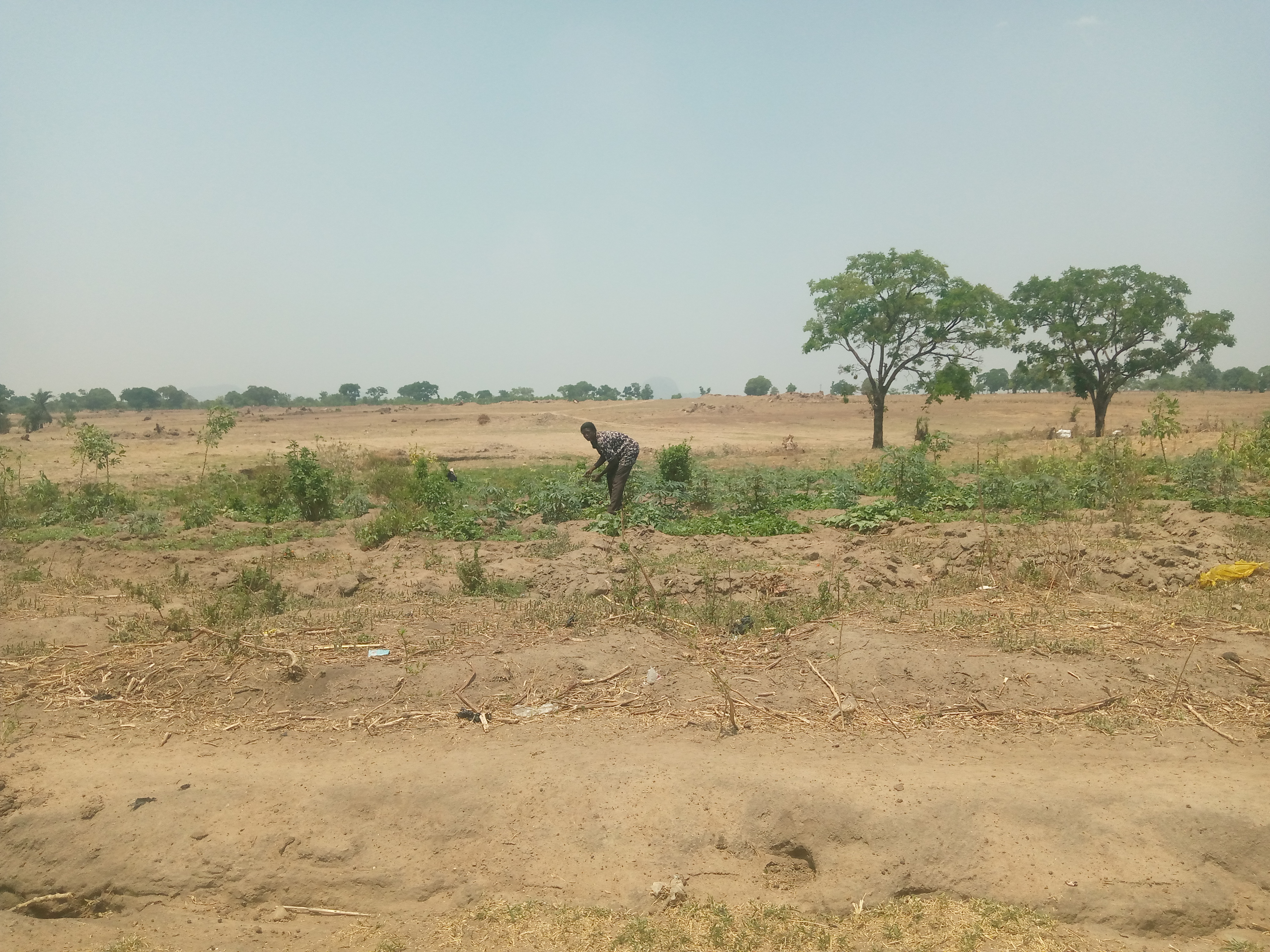Women farmers in the Federal Capital Territory (FCT), the Nigerian capital city are recounting how climate change impact is hitting them and widening economic inequality in the communities they live.
The small holders’ women farmers who spoke to MAWA-Foundation at Jiwa community, in Abuja Municipal Area Council (AMAC), Kuje and Abaji recounted how shortage in rainfall and excess heat from the weather condition is affecting their agricultural activities, making them lose farm yields and income.
Miss Aku Mathias, who spoke to MAWA in her residence in the Jiwa community, disclosed that she depends solely on farming to take care of her children’s feeding and education having lost her husband two decades ago. Speaking in a worried tone, Mathias said many of the women farmers in her community currently record poor yields as a result of inadequate rainfall that affects crop production.
She painted a gory picture of how farmers in her community especially women in the last 13 years are facing economic crisis as a result of poor farm yield. A situation she blamed on changes in weather conditions that are resulting in rainfall shortage and excessive heat.
“At first, we thought it was witches and evil men conspiring to frustrate us by making sure our crops are poorly produced, but we began to understand it is climate issues when NGOs came to our community and began to educate us about climate change impact”, Mathias said.
When Mrs. Mathias took MAWA to inspect some farms in her community to assess how climate change is impacting women farmers, we saw a group of women farmers scooping water from a small river to water their vegetable farms. When we engaged them in a conversation, they said they resorted to the method because their vegetable farms were getting destroyed as a result of insufficient rainfall and excess heat.
This is even as they told MAWA that a good number of women in the community have become poor as a result of inadequate rainfall that is negatively impacting their farms. They, however, disclosed that the only option to salvage the situation is to embrace irrigation, but pointed out that they do not have money to fund it because it is capital intensive considering the high price of petrol and a generator needed to operate it.
“We are now very poor, our vegetable farms we depend on to generate income, feed and send our children to school has been negatively impacted by a change in weather conditions, we cannot do irrigation because we don’t have the means,” one of the women told MAWA.
Mrs. Rosaline Joseph a woman farmer in Abaji Area Council of FCT, has a similar narrative to that of Mathias. Joseph who said she relies on farming to feed her four children and send them to school, told MAWA that women in her community are facing difficulties in farming as a result of a shortage in rainfall and excess heat in weather conditions.
It is the same narrative in the Chikuku community in Kuje. Small-scale women farmers are recounting how a change in weather that comes with a shortage in rainfall and excess heat is adversely impacting them and making farming difficult.
The women who spoke to MAWA in a group of five disclosed that their rice, cassava, maize, and yam farms have since stopped yielding well as a result of a shortage in rainfall.
This is even as three of the women said they borrowed money from co-operative for farming and are not able to pay it back because they recorded huge losses in farm yield. A situation they blamed on a change in weather conditions.
They, however, said the current situation where farming is increasingly difficult as a result of climate change is making them poorer, leading to inequality and domestic violence in some homes in the community.
In the last three years, the MAWA Foundation has concentrated a larger part of its work on educating and creating climate change awareness in Abuja Communities. We empower communities to demand climate justice by showing its impact on the people and environment.
We believe that when citizens are well informed about climate change, they will embrace mitigation and adaptation methods and also begin to demand a fairer and healthier future.
— Audu Liberty Oseni

